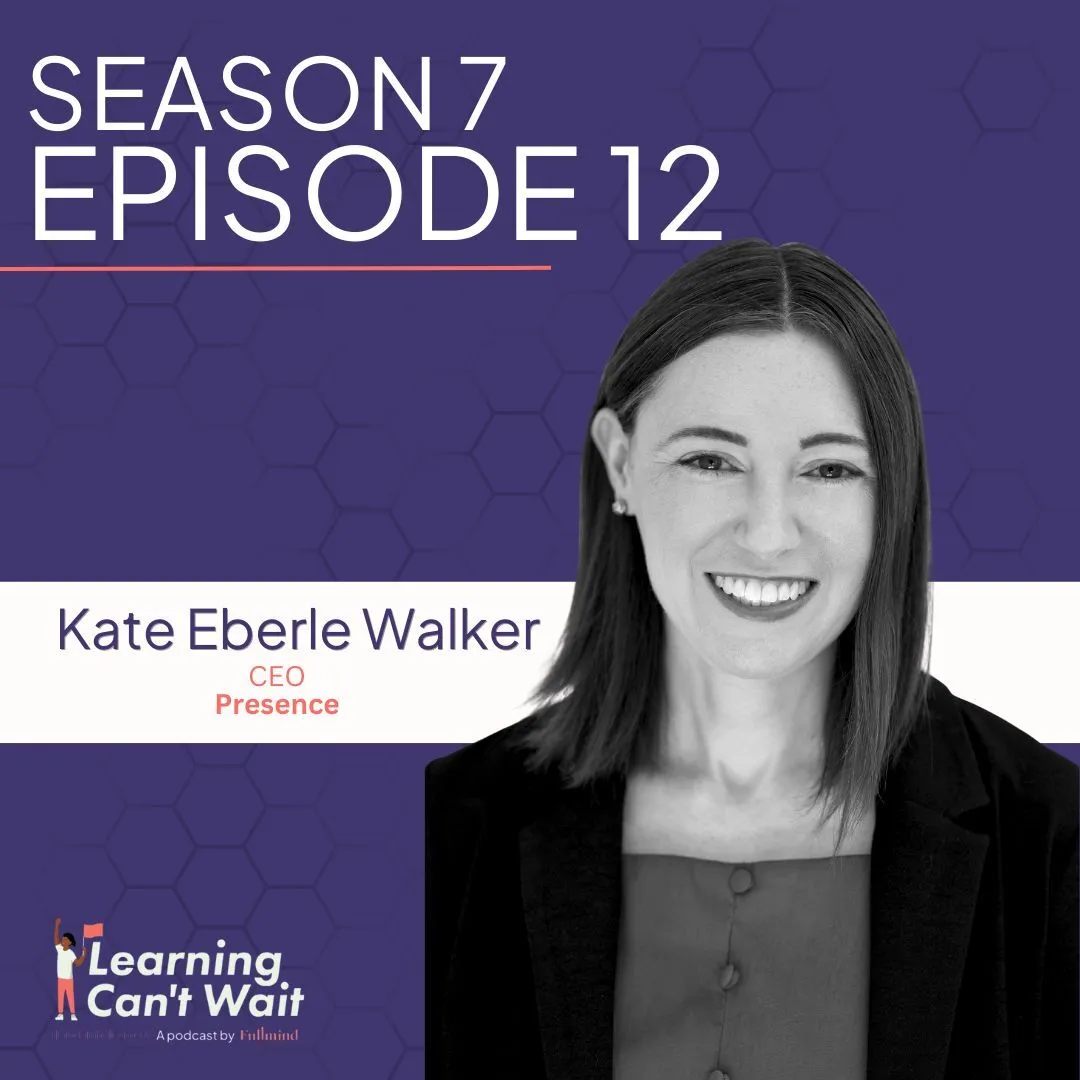For Education Leaders
Get proven strategies and expert analysis from the host of the Learning Can't Wait podcast, delivered straight to your inbox.
High-Dosage Tutoring
Accelerate Growth with Proven Tutoring
- Frequent, data-driven personalized sessions
- Certified, virtual, budget-friendly
- Boosts grades & closes gaps fast
The Cost of Kumon Tutoring & Top Alternatives for 2025

As a parent searching for academic support for your child, you're facing many options with varying approaches and prices. Kumon is a recognizable name in the tutoring industry, particularly for math and reading instruction, while services like Grade Potential tutoring offer different approaches. Many parents ask: how much does Kumon tutoring cost?
This article outlines Kumon's pricing, examines the pros and cons of its educational model, and explores leading tutoring alternatives to help you make an informed decision. We will look at options from commercial learning centers to online platforms with certified teachers, as well as local tutoring services, giving you a comprehensive view of available support for your child's academic journey.
What is the Kumon Method?
The Kumon Method is a self-paced learning program developed in 1950s Japan by educator Toru Kumon. It centers around daily worksheet practice, repetition, and incremental skill-building to help students master concepts before advancing to more challenging material.
Kumon focuses on Math and Reading, with students visiting a local center twice weekly. During these sessions, students work independently on assigned worksheets while instructors and assistants monitor progress, grade work, and provide guidance. The method emphasizes independent learning, with students expected to complete additional worksheets at home.
Kumon Tutoring Cost
When researching Kumon tutoring costs, parents should understand that prices vary by location. As a franchise-based business, each center operates independently, leading to price variations. Here's a breakdown of the typical costs:
One-Time Registration Fee
Most Kumon centers charge an initial registration fee for student assessment, program placement, and materials setup.
- Estimated range: $50-$100 USD
This *Kumon registration fee is a one-time payment per child.
Monthly Tuition Fee (Per Subject)
The main ongoing cost is the monthly tuition fee charged per subject for Kumon.
- Estimated range: $120-$165 USD per subject per month
The Kumon cost per month applies separately to each subject (Math or Reading).
- Enrolling in both subjects means paying double the monthly fee.
Some centers offer different pricing structures.
Potential Discounts
Some Kumon centers offer:
- Sibling discounts (typically 5-10% off for additional children)
- Multi-subject discounts (small percentage off for enrolling in both Math and Reading)
- Occasional promotional periods with reduced registration fees
These figures are estimates. Kumon costs vary based on location and franchise policies and can change over time. Urban centers in high cost-of-living areas often charge on the higher end. For precise, current pricing, contact your local Kumon center directly.
What Factors Influence Kumon's Price?
Several key variables affect the final cost of Kumon tutoring:
- Geographic Location: Centers in metropolitan areas and high-cost regions charge more than those in rural or lower-cost areas.
- Number of Subjects: Each subject (Math or Reading) incurs its own monthly fee. For students enrolled in both subjects, the cost is doubled.
- Franchise Owner Policies: Individual franchise owners can set their center's specific fees within Kumon's general guidelines.
- Enrollment Period: Some centers offer promotions during certain enrollment periods, reducing initial costs.
- Local Competition: Centers in areas with many tutoring options adjust pricing to remain competitive.
Is Kumon Worth the Cost? Weighing the Pros and Cons
Determining if Kumon provides good value depends on your child's needs, learning style, and your family's educational priorities. Let's examine the potential benefits and drawbacks:
Potential Benefits of Kumon (Pros)
- Structured routine: Establishes consistent daily practice habits and academic discipline.
- Self-paced progression: Allows students to move through material at their own speed, advancing beyond grade level.
- Mastery-focused approach: Emphasizes thorough understanding before advancing.
- Independent learning skills: Fosters self-reliance and responsibility for one's education.
- Strong foundational skills: Effective for building arithmetic fluency and reading fundamentals.
- Global recognition: A widely recognized method with a long track record.
- Consistent methodology: Provides a predictable, structured learning environment.
Kumon Drawbacks (Cons)
Repetitive worksheet format may become monotonous and fail to engage students who prefer interactive learning.
- Limited subject scope: Focuses on Math and Reading. It does not offer science, social studies, or other subjects.
- Critics note it can prioritize procedural knowledge over deeper comprehension, resulting in less emphasis on conceptual understanding.
- Instructors primarily facilitate rather than teach, providing minimal direct instruction. They’re typically not certified teachers providing active instruction.
- One-size approach: Does not adapt to individual learning differences, specific disabilities, or unique learning styles.
- Additional homework burden: Daily worksheets add to students' existing school workload, causing burnout.
- Limited help with school-specific curriculum: Not designed to assist with homework or align with particular school teaching methods.
Whether Kumon represents good value depends on your child's needs and learning preferences. A student who thrives with routine and repetitive practice might excel in Kumon, while a child needing more interactive instruction or conceptual explanation might succeed elsewhere.
Top Alternatives to Kumon Tutoring
It's worth exploring tutoring alternatives with different methodologies, pricing structures, and features, recognizing that Kumon's approach isn't ideal for every student. The following options offer various academic support approaches, including virtual tutoring and programs with certified teacher tutoring.
Alternative #1: Fullmind - Live, Certified Teacher Instruction Online
Fullmind offers a different approach from Kumon's worksheet-based model by providing live, virtual instruction from certified teachers. With extensive experience in K-12 schools and districts across the U.S., Fullmind brings institutional-quality educational support directly to families.
Fullmind centers around active, real-time learning with qualified educators, unlike Kumon's self-study approach. Each student receives a personalized learning plan tailored to their needs, learning style, and goals. This customization aligns with school curriculum when helpful, making tutoring sessions relevant to classroom success. The platform supports all subjects, not just math and reading, and accommodates diverse learners, including those with gifted needs or an Individualized Education Program (IEP).
Fullmind's virtual tutoring model combines convenience with quality instruction. Students connect with teachers through an interactive online platform, eliminating travel time while maintaining the personal connection crucial for effective learning. Certified educators bring subject expertise alongside professional teaching skills, allowing them to explain concepts in multiple ways and adapt approaches based on student responses.
For parents considering Fullmind, the value proposition centers on accessing high-quality, certified educators used by schools. While Fullmind primarily partners with educational institutions, it represents an investment in expert-led, personalized instruction rather than facilitated practice.
- Pros: Access to certified teachers, individualized approach, online learning convenience, comprehensive subject coverage, potential curriculum alignment, adaptive teaching methods.
- Cons: Requires more active student participation than worksheets, needs reliable internet and device access, represents a premium educational service compared to basic practice programs.
Fullmind offers a compelling alternative for parents seeking a live-interaction tutoring solution with certified educators and personalized learning paths. Learn more about Fullmind's effective virtual tutoring approach and how their certified teachers can support your child's learning needs.
Alternative #2: Sylvan Learning Centers
Sylvan Learning operates physical centers and online tutoring programs across North America. It is known for its diagnostic assessments and customized learning plans. Unlike Kumon's self-directed approach, Sylvan provides more interactive instruction from certified teachers or highly trained tutors.
Sylvan offers a broader subject range than Kumon, including reading, writing, math, study skills, test preparation, STEM, and homework support. Their tutoring approach involves more direct instruction and explanation than Kumon's worksheet-based method. Cost-wise, Sylvan generally commands premium pricing compared to Kumon, with initial assessment fees ($150-$200) and hourly rates of $45-$65, depending on location and program.
- Pros: Comprehensive assessment process, personalized learning plans, wider range of subjects and services, certified teachers, combination of digital and traditional learning tools.
- Cons: Higher price than many alternatives, potential minimum program commitments, less frequent sessions than Kumon's daily practice, less flexible scheduling than online-only options.
Alternative #3: Mathnasium - Math-Focused Learning Centers
Mathnasium specializes in mathematics instruction through physical learning centers and their Mathnasium@home online platform. Their approach centers around the proprietary "Mathnasium Method," which focuses on building number sense and mathematical understanding rather than just computational skills.
Unlike Kumon's sequential worksheet approach, Mathnasium creates individualized learning plans based on their proprietary assessment to identify each student's strengths and knowledge gaps. Instructors are trained in the Mathnasium methodology and work with students in small groups or individually to develop mathematical thinking. Cost structures are similar to Sylvan, with monthly memberships ranging from $200-$300 for 2-3 sessions per week, varying by location.
- Pros: Singular focus on mathematics allows for specialized expertise, emphasis on conceptual understanding over procedures, engaging approach for many learners, flexible attendance options at many locations.
- Cons: The focus on math only doesn't address other subjects. The cost is usually higher than Kumon for comparable frequency, and teaching may not align with all school curricula.
Alternative #4: Online Tutoring Marketplaces (e.g., Wyzant, Skooli)
Online tutoring marketplaces connect parents with independent tutors through platform-based matching systems. Services like Wyzant and Skooli function as tutoring directories where parents can browse profiles, reviews, and rates to find suitable tutors.
These platforms offer a variety of subjects, tutor qualifications (from college students to certified teachers with advanced degrees), and price points. Online tutoring costs range from $15-$80+ per hour depending on the tutor's experience, credentials, and specialization. Most operate on an as-needed basis without ongoing commitments, providing flexibility but requiring parents to handle the selection and vetting process.
- Pros: A wide selection of tutors across subjects, flexible scheduling and frequency, variable prices to fit budgets, the ability to choose based on qualifications or teaching style, and typically no long-term commitments.
- Cons: Quality and approach vary between tutors, requires parent time for vetting and selection, less structured progress tracking than formal programs, limited availability of preferred tutors.
Alternative #5: School-Based & Free Resources
Before investing in commercial tutoring, explore low-cost resources:
School-based options often include:
- Teacher office hours or extra help sessions
- Peer tutoring programs
- After-school homework help
- Title I or other federally funded supplemental education services
Community and online resources:
- Homework help programs
- Khan Academy (free online instructional videos and practice)
- PBS Learning Media and other educational websites
- Community center or university-sponsored tutoring programs
Pros: Free or low cost, convenient if school-based, aligns with school curriculum, and teachers know your child's classroom experience.
Cons: Less intensive than dedicated tutoring programs, limited availability, lack of one-on-one attention, and online resources lack direct human feedback and personalization.
How to Choose the Right Tutoring Option for Your Child
Choosing the best tutoring solution requires careful consideration of your child's needs and circumstances, with many options available:
- Child's Learning Style: Does your child work well independently (favoring Kumon) or benefit from interactive instruction (suggesting Fullmind, Sylvan)? Do they prefer in-person interaction or are they comfortable with virtual tutoring?
- Specific Academic Needs: Identify if your child needs foundational skill building (Kumon's strength), help with specific school assignments, conceptual understanding (Mathnasium, Fullmind), test preparation, or support for learning differences (specialized tutors or certified teachers).
- Subject Requirements: Determine if you need support in just math or reading (Kumon), exclusively math (Mathnasium), or a wider range of subjects (Fullmind, Sylvan, online marketplaces).
- Budget Considerations: Evaluate the total cost, including registration fees, Kumon monthly cost versus alternatives, and overall value relative to your family's budget. Consider online tutoring cost variations across platforms.
- Teacher Qualifications: Determine if instruction from a certified teacher is important for your situation (making Fullmind more suitable), or if a facilitator/guide approach is sufficient (as with Kumon).
- Schedule and Convenience: Weigh the scheduling needs of center-based programs against the flexibility of online options. Consider your family's commitments and transportation logistics.
- Learning Goals and Timeframe: Clarify if you need short-term support for specific challenges or long-term academic development, and choose a program that aligns with those goals.
Conclusion
Kumon tutoring costs include initial registration fees ($50-$100) and monthly subject costs ($120-$165), varying by location and center policies.
Kumon offers a structured approach with strengths in building routine, discipline, and foundational skills, but it may not be ideal for every student. Its worksheet-based methodology and focus on independent practice work for some learning styles but do not address needs for conceptual explanation or personalized instruction.
Numerous tutoring options exist. These options offer different approaches from personalized learning with certified teachers to specialized math instruction, flexible online marketplaces, and free resources. Each option has its own cost structure, methodology, and benefits.
You can find the best academic support program to help your child build confidence and succeed in their education by considering their learning needs, preferences, and your budget.
For Education Leaders
Get proven strategies and expert analysis from the host of the Learning Can't Wait podcast, delivered straight to your inbox.
Let’s Work Together
We’ll review your application and get in touch!






.webp)




.webp)
.webp)



.webp)



.webp)
.webp)


.webp)
.webp)
.webp)










































.webp)



%20.webp)























